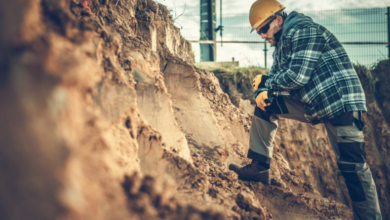
Legal Consequences And Defense Strategies For Criminal Damage Cases
Criminal damage is a grave crime that involves intentionally harming another’s property on purpose or accidentally. This may involve breaking windows, damaging cars, putting up graffiti on buildings, or interfering with utilities – among many other acts – on purpose or unknowingly, whether for purposes other than simple mischief. Damage to property is considered by law to violate ownership rights; its severity depends upon how serious its impact is. Even seemingly minor acts like hitting a car or throwing something that breaks a window could get you in hot water with authorities – find out more here about how experienced defense attorneys build strong plans against fines and protect their clients’ rights when involved in criminal damage cases here.
What Prosecutors Must Prove?
To establish criminal damage charges successfully, the prosecution must establish several important elements. They must demonstrate that the accused acted unlawfully – either on purpose or not thinking clearly enough – and caused property damage that belonged to others. Most disputes over cases revolve around what the individual meant when doing something that caused damage; mistakes might not violate the law, whereas deliberate acts out of spite, anger, or lack of care often do fall under legal jurisdiction. Object value also plays a factor when determining if charges should be filed as misdemeanors or felonies.
See also: Why Businesses Should Prioritize Cyber Threat Intelligence in 2025
Legal Consequences And Penalties
A major factor dictating how severe criminal damage penalties will be is how much it costs to repair or replace property that was destroyed. Most of the time, small fines and charges are given for damage that doesn’t go over certain boundaries. After that, you might have to go on probation, pay back what you owe, or even go to jail for a while. Damage of a certain amount to property owned by the government or the people turns these charges into crimes. You will probably spend more time in jail and pay bigger fines if you commit a crime. It will be tougher for you to get a job, a place to live, or to go to school after you get out of jail. A lot of the time, courts say that people who have been hurt should be paid directly for their suffering.
Collateral Impacts Of A Conviction
Other criminal convictions have long-lasting repercussions beyond immediate legal effects. People who want to work for a company are often checked out, and having a record for property crimes may make someone less reliable. When this is over, teens and young adults might not be able to get work or money. Finding a job or renting a room might be harder for people with criminal records. Plus, they might have trouble getting along with other people. Some people might not be able to talk to certain people about their anger problems or how they hurt their partner if they are later found guilty. Because of these bigger effects, you should really think about the charges against you.
Effective Defense Strategies
In order to effectively defend yourself against criminal damage allegations, it is necessary to have all of the details surrounding the case, as well as evidence supporting it, and who is being charged. Lack of intent is a popular defense used by those facing charges of wrongdoing, wherein they state they acted by chance and without having the mental state necessary for criminal acts. Mistaken identity can also provide an effective defense, particularly in situations with few witnesses and no way of verifying the credibility of those accused of damaging property in public areas. Lawyers may argue that the prosecution exaggerated how much the damage would cost in order to increase charges from a misdemeanor to a crime. Sometimes those being accused may claim permission was given by property owners for them to make changes that later proved to be harmful.
The Role Of Legal Representation
Property loss laws can be hard to understand. Because of this, having a good expert by your side can help you win. A good lawyer can help build their case by looking at all the evidence against their client and talking to witnesses. Also, they can talk to prosecutors about lowering the charges or finding other options, such as diversionary programs that focus on rehabilitation instead of punishment, and let first-time offenders who meet the court’s requirements avoid getting a lasting criminal record.




